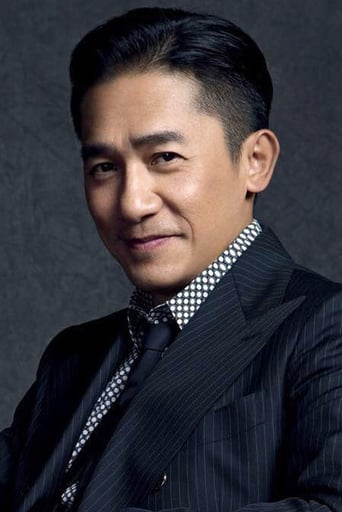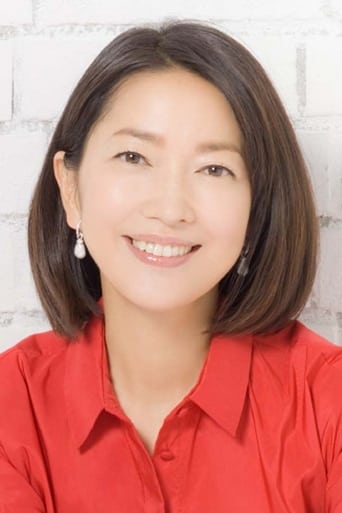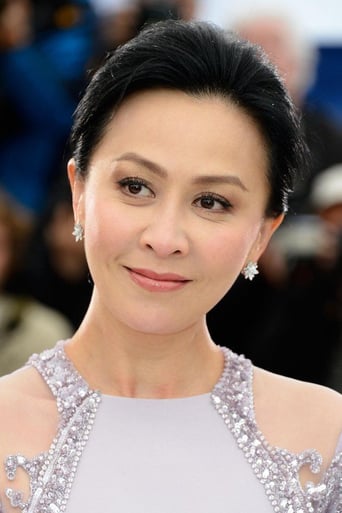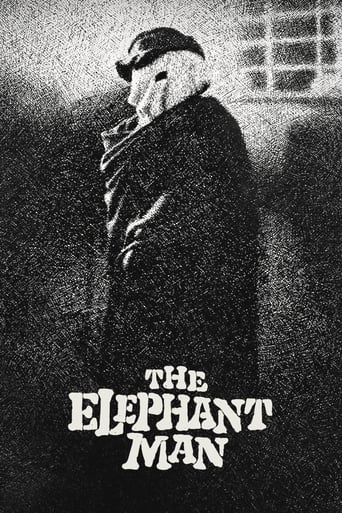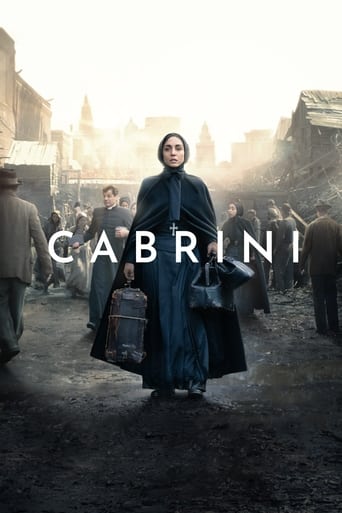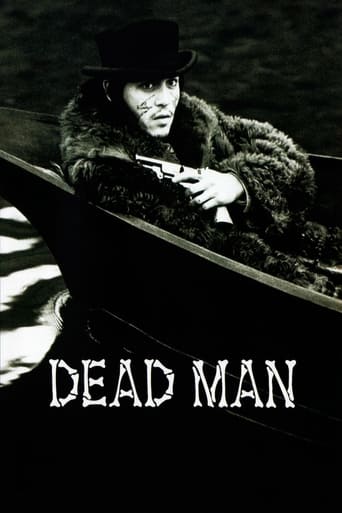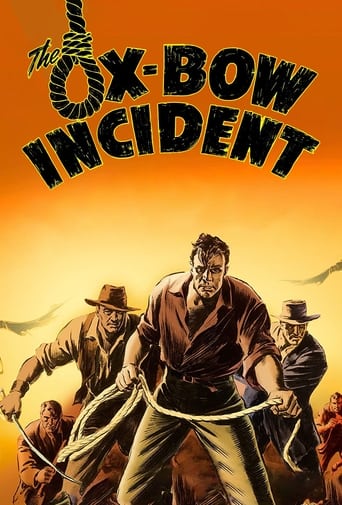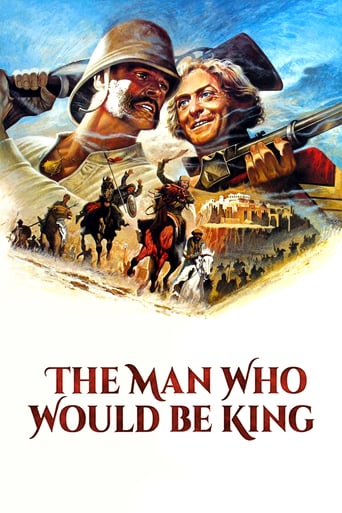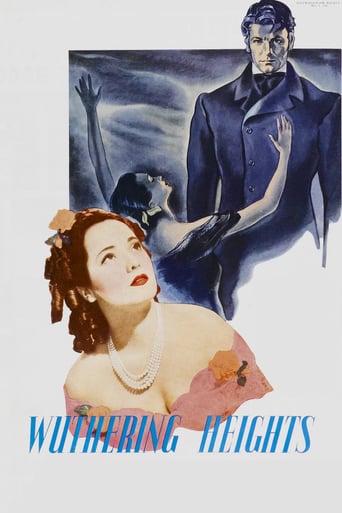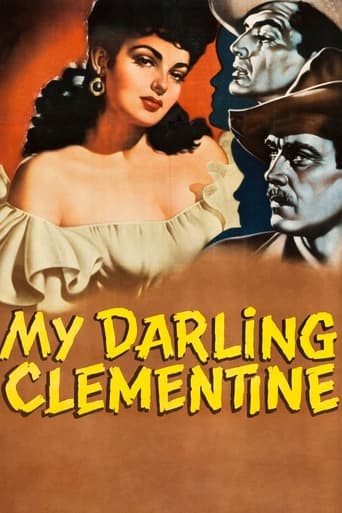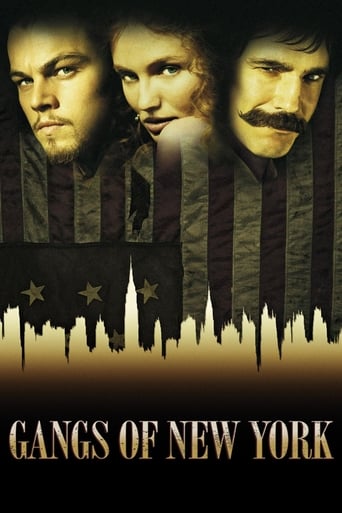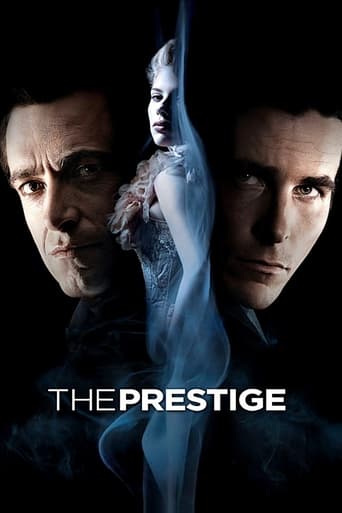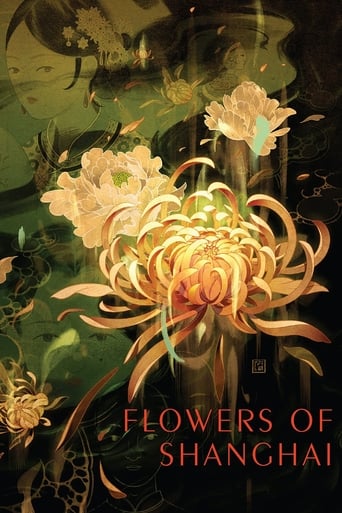

Flowers of Shanghai (1998)
At the end of the 19th century, Shanghai is divided into several foreign concessions. In the British concession, a number of luxurious “flower houses” are reserved for the male elite of the city. Since Chinese dignitaries are not allowed to frequent brothels, these establishments are the only ones that these men can visit. They form a self-contained world, with its own rites, traditions and even its own language. The men don’t only visit the houses to frequent the courtesans but also to dine, smoke opium, play mahjong and relax. The women working there are known as the “flowers of Shanghai”.
Watch Trailer
Cast


Similar titles
Reviews
I came to this movie because Mark Lee Ping Bin did the cinematography, and I was not let down. For a movie that never leaves the four walls of various brothels throughout Shanghai, each scene really fills up the screen, has irresistible colors and lighting and splendor, only to fade softly into black and light up into something new. Imagine how delighted I was to find that the cinematography was matched by an equally strong concept, and that the film is basically a series of vitriolic or pining Craigstlist missed connections ads nestled within an intricate and iron-clad social hierarchy.A fun touch: in the first conversation of the film, one master tells a tale over dinner, sitting around the table with his friends and their companions. It is the story of Crystal (whose outcome will be revealed later in the film) and her lover, a young patron named Yufu. The speaker says that Crystal and Yufu are joined together like toffee, star-crossed lovers who can't get enough of each other. Soon, a debate breaks out: is this type of love a healthy way to live? A few men balk at the idea that growing gaunt from staring into one another's eyes is acceptable. Then the film drags us through countless loveless or otherwise fraught relationships where everyone is withering, suicidal or raging. Seems that in 19th century Shanghai, you just can't win.Watch out for Master Wang...he's the pesky stray thread that undoes the whole damned sweater.
This movie was absolutely brilliant.It was filmed in a manner that makes it seem more realistic than most movies. Each frame is beautiful.A note on dialect - This movie (with the exception of Leung to his mistress) is in Wu Chinese. Wu is hardly a minor language, spoken by well over 70 million people worldwide. It is spoken not only in Shanghai (the largest city in China) but the surrounding provinces, including such large cities as Suzhou and Wenzhou. It is actually more widely spoken than Cantonese and Taiwanese combined, making it the second-most-spoken variety of Chinese, dwarfed only by Mandarin. (70 million speakers is a lot of people; many national languages in Europe have fewer speakers) However, Wu is not spoken by as many overseas Chinese as are Cantonese, Mandarin, and Hokkien (aka Taiwanese, Minnan, etc), and for that reason less Westerners speak it. (in addition, Cantonese, Hokkien, and Mandarin are all the primary languages of at least one self-ruling political unit, even though the former two have less speakers than Wu)This is the only well-known movie with dialogue primarily in Wu, and it is based on the 19th century Wu novel by the same name (except read as Wu).
Hou Hsiao-Hsien's "Flowers of Shanghai" is an opium dream of a movie: visually and aurally there is no mistaking that this is the work of an artist with the imagination of a poet, and the precision of a clockmaker. The opening shot is among the most exquisite in all of cinema: a veritable tour de force that exudes Hou's love for the film medium, but is decidedly restrained and controlled, never allowing style to upstage the narrative and degenerate into mere spectacle. In keeping with the film's setting and rules of patriarchy, the major male characters are introduced first. The women serving these men are then introduced in the following "chapters", each one preceded by title cards announcing their names and place of residence as if gently mocking or subverting the patriarchical order.This chamberpiece drama of sexual intrigue and power struggle is astonishingly acute in capturing the feel and sensibilities of the late 19th century but expressed in very contemporary terms without any apparent compromises or contradictions. The painterly colors of "Flowers" may invite comparison with Dutch masters like Vermeer even when Hou is deliberately conjuring an idealized world that is as hermetic as it is artificial: a world composed entirely without natural light is like a dream, hauntingly beautiful and intense but impossible to hold or to keep. That the film is shot entirely indoors and the mise-en-scene is orchestrated without any close-ups is a testament of Hou's faith and supreme confidence in creating a work that remains completely cinematic while averting the pitfalls of feeling stage bound. Despite the subject matter what is also startling is the complete absence of physical sex on screen; and, yet the film manages to sustain an erotically charged atmosphere.Beginning with "The Puppetmaster" Hou has been increasingly moving towards a more minimalist form of cinema, stripping the narrative of everything that is superfluous until nothing is left but its emotional core, naked and unadulterated. "Flowers" is very much an interior film that does not depend on voiceover narration to make thoughts explicit. Hou's almost static camera continues to favor long medium takes ranging from 5 to 7 minutes, framing key characters sharing the same space and time, but well within reach of each other, capturing the subtle interplay and nuances while allowing them to drift in and out of the picture frame according to their relative importance in the social hierarchy. In this manner an entire community is evoked: demonstrating that the window to the world is precisely through the interior lives of individuals responsible for shaping the body politic.
Hsiao-hsien Hou pushes his style to maximum in this movie. His sequence shots leaves only his spirit for love and its power. Making the consciousness of themovie likely dust, the subtle camera movement helps Hsiao-hsien Hou to achieve this style. The shots vanish and scenes only continue. It can be called truly a no shot movie. This style fits the beauty of Asia very well conceptually and visually! Relax, it's just a movie. Drink the visual of foods and opium and drunk like a new age music.


